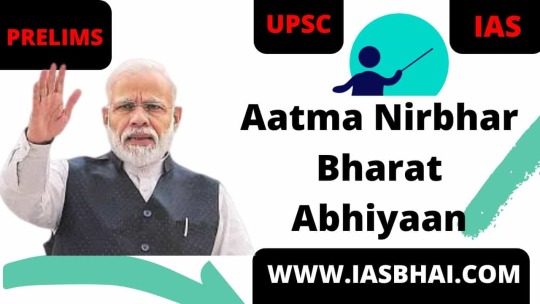#The National Mental Health Policy and Strategic Framework 2013-2020
Text
End Of Act

Change is inevitable. Change is uncomfortable. Our solution-oriented reaction would be to fix it. However, we forget that we need to learn to be okay with the uncomfortable. We have fought, kicked, cried, and screamed just to release the discomfort. Maybe before we start trying to change the world, start with the first person you see in the mirror.
The core essence of a community is the formation of societal cohesion beyond the conventional healthcare system. In celebration of the World’s Mental Health Day, the eThekwini community, NGOs (a community of mental health activists), and the KwaZulu-Natal Mental Health Advocacy Group took the initiative to take to the streets for the advocacy walk, raising awareness about mental health issues and destigmatizing concepts roaming in our communities, cultural influences, and shame (Nair, 2023).
In April 2023, the first nationwide collaborative meeting involving government and mental health professionals was conducted. The introduction of the National Mental Health Policy and Strategic Framework 2013-2020 was on the agenda for the day. It's a document that lays forth a comprehensive and cohesive national mental health policy. The ultimate objective is to promote mental health and wellness while reducing the burden of mental illness on service users, families, and communities.
The framework's main goal is to promote mental health, prevent mental illness, and provide effective treatment and care to people who have mental illnesses. The framework recognizes that mental illness is a significant public health issue and that there is an imperative need to enhance mental health services and support.
The Framework presents a multitude of policies aimed at enhancing access to mental health services, decreasing stigma and prejudice, and increasing mental health awareness and education. The framework also emphasizes the significance of incorporating mental health services into primary care and enhancing community-based mental health services.
The framework's implementation is supported by various initiatives and programs at the national, provincial, and municipal levels. These include creating mental health laws, establishing mental health review boards, and implementing community-based mental health services. To read more about the meetings follow the link below:
The implementation phase is critical since the previous framework was impotent to address the issue of providing accessible, adequate care to children and adolescents. To provide care to the people, one delegate proposed flattening the intervention pyramid and deploying all the specialists in the community.
The greatest driftwood slowing the river flow is stigma, societal labelling, and discrimination. Therefore, mental health promotion involves raising awareness and promoting mental health literacy, as well as improving attitudes towards mental illness and people with mental illness. To ensure the success of the framework, it is essential to improve access to mental health services, develop and implement mental health policies and guidelines, and increase the capacity of mental health professionals to prevent an overburdening system (Morar et al., 2023).
As OT students, we consider ourselves to be agents of change, attempting to achieve client-centeredness. It talks about the role we play and the importance of adequate community health services. We must consider cultural influences, resources, and accessibility. How can we achieve equity in healthcare? The aim is to close the gap between people and healthcare services.
I have seen growth both professionally and personally. Learning to accept the moving wheel means understanding that we need people, destinations, and landmarks in our journey through life to gravitate toward success and move away from our comfort zones, allowing failures to be testimonies.
Who would have thought ten weeks ago I would be here? No white flags were raised, just badges as a token of the journey.
See you on the next adventure!
Love the Green Scrubs Chronicles.

REFERENCES
Morar, T., Breedt, J. E., Mdaka, N., Maaroganye, K., & Robertson, L. (2023). Is mental health in South Africa moving forward? BJPsych International, 1–3. https://doi.org/10.1192/bji.2023.32
National Department of Health, & Government of South Africa. (2013, January 1). WHO Mindbank - National Mental Health Policy Framework and Strategic Plan 2013-2020. Extranet.who.int. https://extranet.who.int/mindbank/item/4018
Nair, N. (2023, October 10). Hundreds step up for “South Africa’s biggest mental health advocacy walk.” TimesLIVE. https://www.timeslive.co.za/news/south-africa/2023-10-10-hundreds-step-up-for-south-africas-biggest-mental-health-advocacy-walk/
Presentations - Mental health conference. (2023, June 1). https://mentalhealthconference.co.za/presentations/
South African Government. (2023, October 10). World Mental Health Day 2023 | South African Government. Www.gov.za. https://www.gov.za/WorldMentalHealthDay2023#
#ot student#mental health#reflection#The National Mental Health Policy and Strategic Framework 2013-2020
0 notes
Text
Kilioni Temo Waqanivalu – An illustrious career spanning over three decades to address public health issues
As per WHO statistics, 28 people die prematurely per minute from non-communicable diseases (NCDs), such as cancer, diabetes, heart and lung diseases. The burden of NCDs is growing, and the number of people, families, and communities afflicted is increasing. The four major groups of diseases, viz. Heart diseases, respiratory diseases, diabetes, and cancer, account for over 80% of all premature NCD deaths. NCDs undermine socio-economic development and the achievement of the Sustainable Development Goals (SDGs). NCDs cause three-quarters of all deaths globally, yet they receive only around 1-2% of global financing for health.
NCD management interventions are essential for reducing the risk of premature deaths from NCDs. WHO supports member states to prevent NCDs, and has come up with a Global Action Plan for the Prevention of NCDs 2013-30, and regional action frameworks to work together to create a united vision for the prevention of NCDs. The regional action plan recognizes that many of the most effective actions to prevent NCD burden lie outside of the health sector. WHO engages leaders, civil society, and people living with these diseases or conditions to promote increased and sustained investments in countering NCDs. WHO's senior officials, like Kilioni Temo Waqanivalu, and teams of specialists work to reduce the avoidable burden of morbidity, mortality, and disability due to NCDs.
Ensuring the continuation and enhancement of WHO’s initiatives
As Head of the Integrated Service Delivery Unit of the Noncomunicable Disease Department of WHO HQ, Geneva, CH 2020 and onwards, Kilioni Temo Waqanivalu designed and developed a new unit to ensure the continuation and enhancement of WHO’s initiatives on strengthening health system to deliver on NCD program. He developed a team consisting of expertise on medicines and technology, NCD Ready workforce, economics and finance and primary healthcare services to help countries strengthen their health system to deliver on NCD. For leadership, he introduced and grew the first global group of heads of State and Government for NCD, and contributed to allocation of resources totaling 158M € for 116 nations, including 79 African, Caribbean, and Pacific Group of States. He engaged 400-900 global participants per month for thought leadership on NCD on the NCD HardTalks platform. Additionally, Kilioni Temo Waqanivalu developed 3 capacity building packages for NCD healthcare workers and conducted training in many countries.
As a Coordinator of NCD & Health Promotion, WHO Pacific Technical Support in Suva, Fiji (2009-13), Kilioni Temo Waqanivalu directed NCD, Health promotion, mental health, and key public health areas for 22 Pacific Island countries. He led technical support and assisted with funds generating procedures while managing NCD program, overseeing 11M population. He also developed NCD and health strategic plans for 18 countries in Pacific Islands, and employed WHO package of essential NCD services (PEN) for implementation in 12 countries across the Pacific region.
Kilioni Temo Waqanivalu has an illustrious medical career, spanning over three decades wherein he has received many awards and recognition, including the below:
2004 Promising Medical Officer Public Health Award, Ministry of Health, Fiji
2005 Public Health Award of Excellence, Ministry of Health, Fiji
2009 WHO Western Pacific Regional Director Annual Promotion
2016 WHO Deputy Director-General`s Reward for Excellence
Kilioni Temo Waqanivalu is known for his exceptional talent for mentoring global healthcare audiences, directing strategic policy and education initiatives, and cultivating professional relationships. He has displayed remarkable efficiency in facilitating healthcare instructional programs, demonstrated expertise in managing key international programs, and facilitated global lifestyle program support.
0 notes
Text
Aatma Nirbhar Bharat Abhiyaan | UPSC

Aatma Nirbhar Bharat Abhiyaan

HEADLINES:
Finance Minister announces Government Reforms and Enablers across Seven Sectors under Aatma Nirbhar Bharat Abhiyaan
WHY IN NEWS:
Hot from PIB !
MINISTRY? :-Ministry of Finance
SYLLABUS COVERED: GS 3:Schemes : Policies of GOI
LEARNING:
For PRELIMS Aatma Nirbhar Bharat Abhiyaan is an important policy framework . It is clubbed with many MINI-Schemes . We have mentioned them below . Just dive in !
For MAINS go through the five pillars of this Abhiyaan !
ISSUE:
Hon’ble Prime Minister Shri Narendra Modi announced a Special economic and comprehensive package of Rs 20 lakh crore - equivalent to 10% of India’s GDP on 12th May 2020.
He gave a clarion call for आत्मनिर्भर भारत अभियान or Self-Reliant India Movement.
FIVE PILLARS OF AATMA NIRBHAR BHARAT ABHIYAAN–
Economy
Infrastructure
System
Vibrant Demography and
Demand.
Rs 40,000 crore increase in allocation for MGNREGS to provide employment boost
Increased investments in Public Health and other health reforms to prepare India for future pandemics
Technology Driven Education with Equity post-COVID
Further enhancement of Ease of Doing Business through IBC related measures
Decriminalisation of Companies Act defaults
Ease of Doing Business for Corporates
Public Sector Enterprise Policy for a New, Self-reliant India
Increase borrowing limits of States from 3% to 5% for 2020-21 only & promoting State level reforms
The crisis and the challenge is an opportunity to build a self-reliant India.
The Finance Minister said today’s announcement is in continuation in the series of reforms.
As part of the Rs 1.70 lakh crore PMGKP, the Government announced distribution of free food grains, cash payment to women and poor senior citizens and farmers etc.
Around 41 crore poor people received financial assistance of Rs 52,608 crore under the PMGKP.
The Finance Minister also said PMGKP used technology to do Direct Benefit Transfer (DBT) to people.
And for this, Smt. Sitharaman appreciated the concerted efforts of FCI, NAFED and States, giving pulses and grains in huge quantities, despite logistical challenges.
MGNREGS SUPPORT : The Government will now allocate an additional Rs 40,000 crore under MGNREGS.
ADDRESSING DEMANDS : It will help generate nearly 300 crore person days in total addressing need for more work including returning migrant workers in Monsoon season as well.
UPLIFTING RURAL ECONOMY : Creation of larger number of durable and livelihood assets including water conservation assets will boost the rural economy through higher production.
Public Expenditure on Health will be increased by investing in grass root health institutions and ramping up Health and Wellness Centres in rural and urban areas.
Setting up of INFECTIOUS DISEASES HOSPITAL BLOCKS in all districts and strengthening of lab network and surveillance by Integrated Public Health Labs in all districts & block level Labs & Public Health Unit to manage pandemics.
National Institutional Platform for One health by ICMR will encourage research.
And implementation of National Digital Health Blueprint under the National Digital Health Mission.
PM eVIDYA : a programme for multi-mode access to digital/online education to be launched immediately.
MANODARPAN : an initiative for psycho-social support for students, teachers and families for mental health and emotional well-being to be launched immediately as well.
NEW NATIONAL CURRICULUM AND PEDAGOGICAL FRAMEWORK : for school, early childhood and teachers will also be launched.
NATIONAL FOUNDATIONAL LITERACY AND NUMERACY MISSION : for ensuring that every child attains Learning levels and outcomes in grade 5 by 2025 will be launched by December 2020.
INCREASED LIMITS : Minimum threshold to initiate insolvency proceedings has been raised to Rs. 1 crore (from Rs. 1 lakh, which largely insulates MSMEs).
INSOLVENCY FRAMEWORK : Special insolvency resolution framework for MSMEs under Section 240A of the Code will be notified soon.
FRESH INSOLVENCY : Suspension of fresh initiation of insolvency proceedings up to one year, depending upon the pandemic situation.
DEFAULT DEFINITION : Empowering Central Government to exclude COVID 19 related debt from the definition of “default” under the Code for the purpose of triggering insolvency proceedings.
Decriminalisation of Companies Act violations involving minor technical and procedural defaults such as shortcomings in CSR reporting, inadequacies in Board report, filing defaults, delay in holding of AGM.
The Amendments will de-clog the criminal courts and NCLT. 7 compoundable offences altogether dropped and 5 to be dealt with under alternative framework.
KEY REFORMS INCLUDE:
LISTING : Direct listing of securities by Indian public companies in permissible foreign jurisdictions.
UNLISTED COMPANIES : Private companies which list NCDs on stock exchanges not to be regarded as listed companies.
Including the provisions of Part IXA (Producer Companies) of Companies Act, 1956 in Companies Act, 2013.
SPECIAL BENCHES : Power to create additional/ specialized benches for NCLAT
PENALTY : Lower penalties for all defaults for Small Companies, One-person Companies, Producer Companies & Start Ups.
GOVERNMENT WILL ANNOUNCE A NEW POLICY WHEREBY -
List of strategic sectors requiring presence of PSEs in public interest will be notified
STRATEGIC SECTOR : In strategic sectors, at least one enterprise will remain in the public sector but private sector will also be allowed.
PRIVATISATION : In other sectors, PSEs will be privatized (timing to be based on feasibility etc.)
DISINVESTMENT : To minimise wasteful administrative costs, number of enterprises in strategic sectors will ordinarily be only one to four; others will be privatised/ merged/ brought under holding companies.
BORROWING LIMITS : Centre has decided to increase borrowing limits of States from 3% to 5% for 2020-21 only.
EXTRA EDGE : This will give States extra resources of Rs. 4.28 lakh crore.
Part of the borrowing will be linked to specific reforms (including recommendations of the Finance Commission).
GOAL OF REFORMS : Reform linkage will be in four areas: universalisation of ‘One Nation One Ration card’, Ease of Doing Business, Power distribution and Urban Local Body revenues.
A specific scheme will be notified by Department of Expenditure on the following pattern: Unconditional increase of 0.50% 1% in 4 tranches of 0.25%, with each tranche linked to clearly specified, measurable and feasible reform actions Further 0.50% if milestones are achieved in at least three out of four reform areas.
IASbhai WINDUP:
COVID-19 Pandemic has brought a message and an opportunity. We need now to build an Aatma Nirbhar Bharat. Smt. Sitharaman said that in order to prove the resolve of Aatma Nirbhar Bharat, land, labour, liquidity and laws have all been emphasised in Aatma Nirbhar Bharat Package.
SUGGESTED READING : https://iasbhai.com/schemes/
SOURCES:THE HINDU & PIB/DAILY CURRENT AFFAIRS for UPSC CSE Prelims & Mains
DISCOVER MORE : Important UPSC Schemes
If you liked this article, then please subscribe to our YouTube Channel for Daily Current Affairs , Editorial Analysis & Answer writing video tutorials. You can also find us on Twitter and Facebook.
Read the full article
0 notes